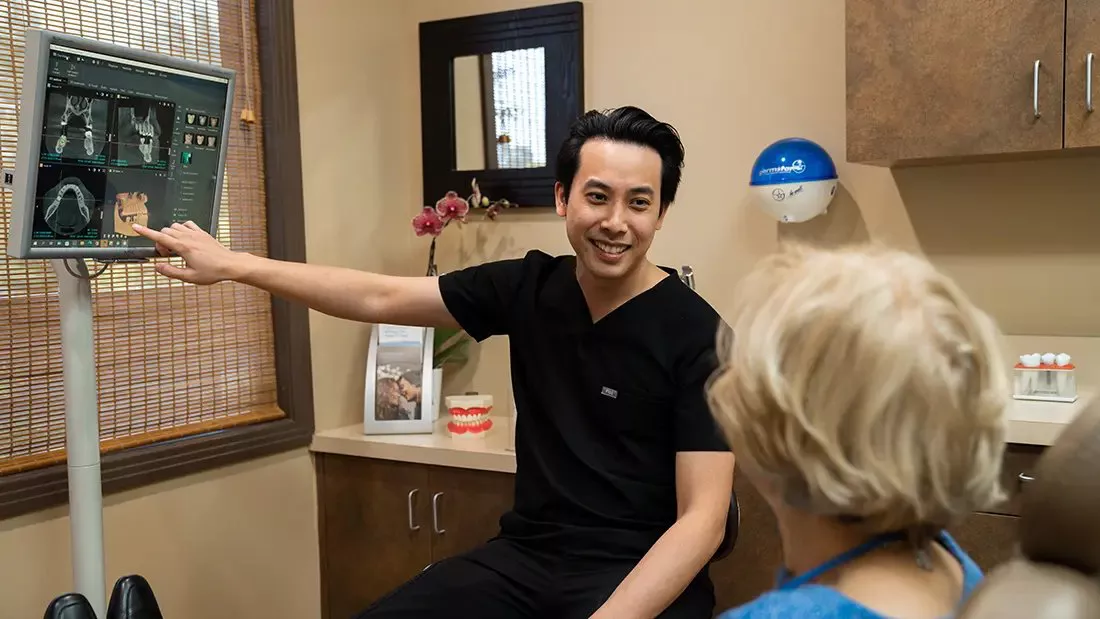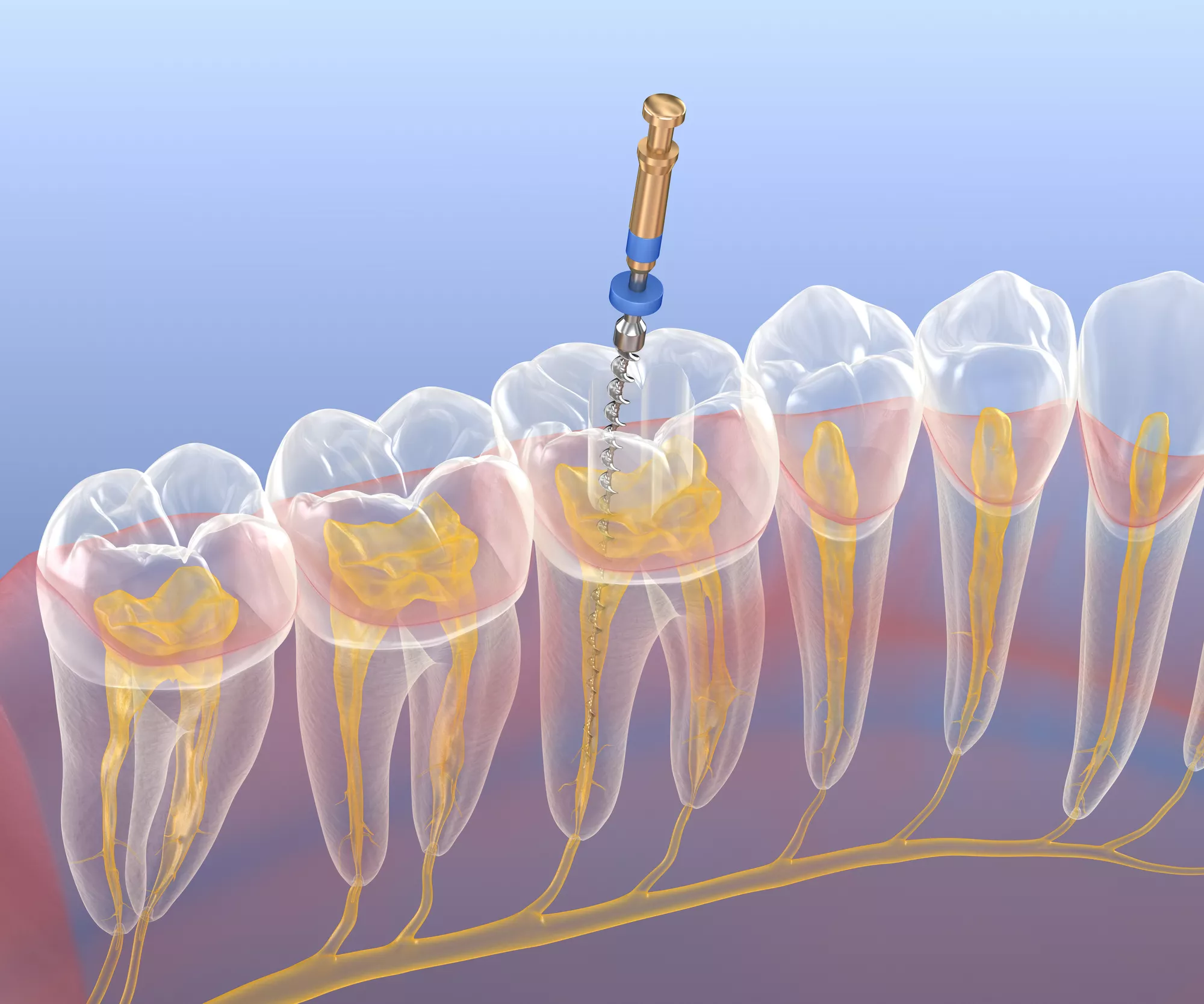A root canal is a highly effective dental procedure designed to save a damaged or infected tooth. While the treatment has a strong track record for success, it’s natural to wonder about the possible side effects—both immediately after the procedure and over time. Understanding what’s expected and what might signal a problem can help you feel more confident and prepared for recovery.
In this article, we’ll explore root canal treatment side effects, distinguish between normal post-treatment symptoms and warning signs of complications, and take a closer look at the long-term side effects of root canal treatment. We’ll also debunk common myths and explain why most root canals, when performed by skilled endodontists, are safe, predictable, and restorative.
What Are the Normal Side Effects After a Root Canal?
It’s completely normal to experience mild symptoms for a few days after your root canal. These short-term side effects are usually the result of inflammation in the surrounding tissues and your body’s natural healing response.
Common and Expected Side Effects Include:
- Mild to Moderate Pain or Discomfort: It’s common to feel soreness in the treated area, especially when chewing. This usually peaks within 24–48 hours and gradually subsides over the next few days.
- Tooth Sensitivity: The tooth may feel more sensitive to pressure, touch, or temperature, particularly if there was significant infection or inflammation prior to the procedure.
- Swelling or Tenderness in the Gums: Minor swelling around the tooth or jaw area is a normal response and can typically be managed with over-the-counter anti-inflammatories.
- Jaw Stiffness or Fatigue: Because root canal therapy can take some time, keeping your mouth open for an extended period may result in temporary jaw discomfort.

How Long Do These Side Effects Last?
In most cases, symptoms begin to improve within 72 hours and are fully resolved within 7–10 days. If discomfort increases or lingers beyond this point, it’s a good idea to contact your endodontist for a follow-up evaluation.
When Side Effects Might Indicate a Problem
While most root canal procedures are successful, complications can occasionally occur. It’s important to know which symptoms could point to a more serious issue.
Concerning Side Effects to Watch For:
- Severe or Increasing Pain: Pain that worsens over time rather than improving may signal persistent infection or an issue with the seal or filling.
- Fever or Malaise: A fever, chills, or general fatigue could indicate systemic infection, which requires prompt medical attention.
- Persistent Swelling or Abscess Formation: Swelling that does not improve or becomes more pronounced may suggest that the infection has not been fully resolved.
- Pus Discharge or a Bad Taste in the Mouth: This could be a sign of a draining abscess or reinfection at the treatment site.
- Tooth Discoloration or Loosening: While some post-treatment darkening is normal, significant changes or loosening of the tooth should be evaluated.
If you experience any of these symptoms, contact your dentist or endodontist immediately. Early intervention can often correct complications before they become more serious.
Long-Term Side Effects of Root Canal Treatment
For most patients, a root canal offers lasting relief and function. However, there are long-term side effects of root canal treatment that may arise in rare or complex cases.
Potential Long-Term Side Effects Include:
- Persistent Discomfort or Pressure: A small number of patients report lingering sensitivity or discomfort long after the procedure. This may be due to microscopic accessory canals, scar tissue, or unresolved inflammation.
- Tooth Fracture or Structural Weakening: A tooth that has undergone root canal therapy is more brittle and susceptible to fracture over time, especially without proper crown placement. This is why a crown is often recommended to strengthen and protect the tooth.
- Reinfection: Though rare, bacteria can re-enter the tooth through cracks, loose fillings, or improperly sealed canals, leading to the need for retreatment or apicoectomy.
- Surrounding Bone Loss: In untreated cases of reinfection, the bone around the tooth’s root may begin to deteriorate, threatening the tooth’s stability.

Despite these potential outcomes, long-term success rates for root canal therapy remain high—typically above 85%—especially when performed by an experienced endodontist and followed by proper restoration.
Root Canal Myths vs. Reality
There’s no shortage of misinformation surrounding root canals. Let’s set the record straight:
| Myth | Fact |
|---|---|
| Root canals are extremely painful. | Modern techniques and local anesthesia make the procedure no more uncomfortable than getting a filling. |
| Root canals cause illness. | This outdated theory has been debunked by scientific studies. Root canals do not increase the risk of systemic disease. |
| Tooth extraction is a better option. | Saving your natural tooth is almost always preferable to extraction, offering better function and appearance. |
Understanding the difference between myths and facts can help you make informed decisions about your oral health.
Recovery Tips After a Root Canal
To support healing and reduce the risk of complications:
- Stick to soft foods for the first few days.
- Avoid chewing on the treated side until the final restoration is placed.
- Take all medications as prescribed, including antibiotics if recommended.
- Maintain excellent oral hygiene.
- Follow up with your dentist for crown placement or permanent restoration as advised.
Why Choose Foundation Dental Specialists in Pasadena?
At Foundation Dental Specialists, we specialize in root canal therapy and advanced endodontic care for patients in Pasadena and the surrounding areas. Our experienced endodontists use the latest diagnostic tools and techniques to ensure every treatment is precise, comfortable, and effective. Whether you’re experiencing symptoms or seeking expert evaluation, we provide personalized care in a calm, professional setting.

Contact Us for Expert Root Canal Care
If you’re experiencing pain, swelling, or have been told you need a root canal, don’t wait. The team at Foundation Dental Specialists in Pasadena is here to help you feel better, preserve your natural teeth, and restore your oral health.
Contact us today to schedule a consultation and take the next step toward relief and recovery with trusted endodontic care.
FAQs
Is pain normal after a root canal?
Yes, mild to moderate discomfort is common for a few days after the procedure. This is usually caused by inflammation around the treated tooth and can be managed with over-the-counter pain relievers.
Is swelling after a root canal normal?
Mild swelling around the treated area is normal and usually subsides within a few days. However, significant or worsening swelling could be a sign of infection and should be checked by a dental professional.
Why does my tooth still hurt weeks after a root canal?
Lingering pain could be due to unresolved inflammation, bite issues, or a hidden canal that wasn’t treated. It’s important to follow up with your endodontist if discomfort continues beyond the typical healing period.
What should I avoid after a root canal?
Avoid chewing hard or sticky foods on the treated tooth until it’s fully restored with a crown. You should also avoid smoking and maintain good oral hygiene to support healing.



